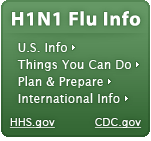Manténgase fresco cuando hace mucho calor
Conozca más sobre las enfermedades relacionadas con el calor, y cómo mantenerse fresco y sano bajo temperaturas muy elevadas.
El calor extremo puede enfermarlo, pues su cuerpo no tiene forma de compensarlo y enfriarse adecuadamente. La exposición al calor incluso puede causarle la muerte. En los Estados Unidos entre 1999 y el 2009 ocurrieron 7,233 muertes asociadas al calor.
Factores principales que afectan la capacidad del cuerpo para enfriarse cuando hace mucho calor:
- Humedad elevada. Cuando la humedad es muy alta, la transpiración no se evapora rápidamente, lo que evita que el cuerpo libere el calor con la rapidez necesaria.
- Factores personales. La edad, la obesidad, la fiebre, la deshidratación, las enfermedades cardiacas, las enfermedades mentales, la mala circulación, las quemaduras de sol, el uso de medicamentos recetados y el consumo de alcohol pueden afectar de manera importante cuando una persona tiene que enfriar su cuerpo bajo condiciones muy calurosas.
- Los ancianos, los niños muy pequeños y las personas con enfermedades crónicas o mentales son las más susceptibles.
- Incluso las personas sanas y jóvenes pueden enfermarse a causa del calor si realizan actividades extenuantes cuando la temperatura es muy elevada.
- El aire acondicionado constituye el mejor factor de protección contra las enfermedades y muertes relacionadas con el calor. Si una casa no tiene aire acondicionado, se puede reducir el riesgo de sucumbir a una enfermedad por calor pasando más tiempo en establecimientos públicos con aire acondicionado.
- Permanezca en ambientes interiores frescos.
- Beba líquidos en abundancia.
- Planifique cuidadosamente las actividades al aire libre.
- Use ropa suelta, ligera, de colores claros y póngase filtro solar.
- No se apresure.
- Báñese o dúchese para refrescarse
- Acuerde un sistema de cuidado mutuo con sus amigos.
- No deje a los niños dentro de los automóviles.
- Esté al tanto de las noticias locales para actualizarse en temas de salud y seguridad.
-.-.-.-
Keep Your Cool in Hot Weather
Learn about heat-related illness and how to stay cool and safe in hot weather.
Now is the time to prepare for the high temperatures that kill hundreds of people every year. Extreme heat caused 7,415 heat-related deaths in the United States from 1999 to 2010 . Heat-related deaths and illness are preventable, yet annually many people succumb to extreme heat.
Take measures to stay cool, remain hydrated and to keep informed. Getting too hot can make you sick. You can become ill from the heat if your body can't compensate for it and properly cool you off. The main things affecting your body's ability to cool itself during extremely hot weather are:
- High humidity. When the humidity is high, sweat won't evaporate as quickly, which keeps your body from releasing heat as fast as it may need to.
- Personal factors. Age, obesity, fever, dehydration, heart disease, mental illness, poor circulation, sunburn, and prescription drug and alcohol use can play a role in whether a person can cool off enough in very hot weather.
Those who are at highest risk include people 65 and older, children younger than two, and people with chronic diseases or mental illness. Closely monitor people who depend on you for their care:
- Are they drinking enough water?
- Do they have access to air conditioning?
- Do they need help keeping cool?
People at greatest risk for heat-related illness can take the following protective actions to prevent illness or death:
- Stay in air-conditioned buildings as much as possible. Contact your local health department or locate an air-conditioned shelter in your area. Air-conditioning is the number one protective factor against heat-related illness and death. If a home is not air-conditioned, people can reduce their risk for heat-related illness by spending time in public facilities that are air-conditioned, and using air conditioning in vehicles.
- Do not rely on a fan as your primary cooling device during an extreme heat event.
- Drink more water than usual and don't wait until you're thirsty to drink.
- Check on a friend or neighbor and have someone do the same for you.
- Don't use the stove or oven to cook—it will make you and your house hotter.
Even young and healthy people can get sick from the heat if they participate in strenuous physical activities during hot weather:
- Limit outdoor activity, especially midday when the sun is hottest.
- Wear and reapply sunscreen as indicated on the package.
- Pace activity. Start activities slow and pick up the pace gradually.
- Drink more water than usual and don’t wait until you’re thirsty to drink more. Muscle cramping may be an early sign of heat-related illness.
- Wear loose, lightweight, light-colored clothing.
If you participate on a sports team that practices during hot weather protect yourself and look out for your teammates:
- Schedule workouts and practices earlier or later in the day when the temperature is cooler.
- Monitor a teammate’s condition, and have someone do the same for you.
- Seek medical care immediately if you or a teammate has symptoms of heat-related illness.
- Learn more about how to protect young athletes from heat-related illness by taking this CDC course.
Everyone should take these steps to prevent heat-related illnesses, injuries, and deaths during hot weather:
- Stay in an air-conditioned indoor location as much as possible.
- Drink plenty of fluids even if you don't feel thirsty.
- Schedule outdoor activities carefully.
- Wear loose, lightweight, light-colored clothing and sunscreen.
- Pace yourself.
- Take cool showers or baths to cool down.
- Check on a friend or neighbor and have someone do the same for you.
- Never leave children or pets in cars.
- Check the local news for health and safety updates.






















.png)










No hay comentarios:
Publicar un comentario